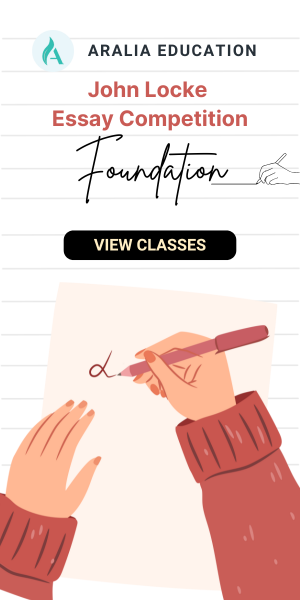Aralia Empowers Students Worldwide
We're proud to guide a thriving community of students worldwide! Our award-winning teachers and college professors offer a wide range of competition preparation and academic classes to jumpstart your learning journey.
1. Why contact a college admissions office?
Even if you haven’t been waitlisted or deferred, contacting the admissions office is still a good idea to demonstrate your sincere interest in the school. Don’t ask for an open chat/call without a topic—make sure you have 1-2 specific questions that were not answered on the school website, brochure, course descriptions, or other official school materials. Even if you just have one question, that’s ok!
2. Who do I email?
Find out your regional representative. It’s best to directly contact an individual in the admissions office instead of the general admissions@school.edu email. This ensures your email gets handled in a timely manner and that your regional admissions officer can remember your demonstrated interest when reading your application.
Do not automatically go to the highest-ranking admissions officer because they might not be responsible for you and simply forward your email to your regional officer anyway. Another caveat is that their inboxes are fuller, so they may miss your email, or worse your email may go to spam.
3. What do I write in my email to college admissions?
The four main types of emails are questions about the school, questions about the application, post-interview thank you note, and a Letter of Continued Interest. Each has different formats, which this blog will discuss in detail below.
Questions about the School
School-related questions are different from application-related ones because they focus on what the college or university offers once a student is enrolled. Whereas the other type is questions about the paperwork of the application process. Below are example questions about the school to email your college admission officer.
- Student organizations
Oftentimes, colleges will advertise a grand number of available student clubs for undergraduates to join, but you may not find enough information on club activities and student involvement levels. You can find a specific club you’re interested in joining, voice your enthusiasm for the club’s mission, and ask for more information on this club. If you explain your previous background in a related club, your admissions officer could even recommend similar clubs that may appeal to you but weren’t listed on the school website.
Example:
“I resonate deeply with the university’s mission to foster interconnectedness across diverse communities. Can you please provide information about the Tufts chapter of Peer Health Exchange? How do club members get involved with the local Boston community? What impacts and student projects have club members been involved in? I’m interested in the club’s community health educator role! Throughout middle and high school, I’ve been involved in volunteer and fundraising work to improve education accessibility at children’s homes and under-resourced schools in rural China. Hence, I’m eager to learn how to continue my community service efforts at Tufts University.”
- Courses
Before write an email to college admissions about a course you’re interested in, ensure your question doesn’t overlap with the course description. You can ask about prerequisites for classes or whether certain classes are more for upper or underclassmen. Demonstrate your interest in the academic topic and passion for applying your learning outside the classroom, i.e. professors’ labs or student organizations funding student-led projects.
Example:
“I’m very interested in Professor Slughorn’s class on Advanced Applications of Chemistry to Engineering, particularly the class project on vaccine dispensing medical devices from the course description. Are underclassmen permitted to take this course? Would my 5 in AP Chemistry and two semesters of lab experience in chemical engineering at my high school’s neighboring community college qualify me to fulfill the course’s prerequisites? If not, do you have other course recommendations or ways for me to get involved in chemical engineering projects as an incoming freshman?”
- Research opportunities
On the note of professors’ labs and student-led projects, another topic to ask about is research opportunities in your field of interest, including those available to freshmen. Note that most university research labs have their respective websites full of details on current and past projects, so make sure your question doesn’t overlap with that information. Additionally, don’t be discouraged if your admissions officer cannot answer your question, consequently directing you to the lab’s website. You can also contact the professor responsible for the lab or ask your admissions officer to put you in touch with students in the lab who would be interested in talking with prospective students.
Example:
“How can freshmen get involved with research opportunities in organic chemistry outside of the introductory course? Can you please provide insight into the makeup of student assistants in chemistry research labs at Beauxbatons University, particularly the openings for underclassmen?”
- Double majoring or minoring
While some colleges may promote a high percentage of students double majoring, many don’t offer statistics on how many students choose which combinations of majors. If you have a unique combination of majors that you want to try, ask your admissions officer if that’s possible and how students have previously performed with that combination. You can also ask about the difference between two similar majors if their descriptions are vague and show much overlap. In that case, it may be a good idea to ask how students of each major have typically chosen their electives and how different their career trajectories have been after graduating so you can compare and contrast. For example, Engineering Psychology and Human Factors Engineering are two similar majors, and many required courses are cross-listed. This may cause reasonable confusion to prospective students; hence, it’s a reasonable question to email college admissions about. It also demonstrates insight and careful research into the program.
Example:
“Can I double major in [major1] and [major2], and how common do students do this? What other combinations do you usually see? What majors or minors help supplement [major1]?”
- Post-graduation employment data
“What career opportunities, including internships, co-ops, and job offers, have students from [this major] received?”
“Which companies in the [specific field] tend to hire generously from Durmstrang University?”
- Alumni engagement
Colleges like Tufts University have an internship system for getting undergraduate students involved with alumni-led projects. You can ask about the alumni engagement scene at the university and see how enthusiastic alumni are about giving back to the school. This will help you gauge student happiness on campus and future career opportunities.
Example:
“How do alumni get involved with the undergraduate community? How does the university facilitate connections between undergraduates and alumni to foster helpful, professional connections and encourage internship opportunities and job referrals? Can you share more about alumni networking, speaker, and panel events for undergraduates to engage with and learn from alumni?
- Cross-enrollment and College Consortium
Many universities allow students to take classes at nearby partner universities. For example, the Five College Consortium of Amherst College, Hampshire College, Mount Holyoke College, Smith College, and UMass Amherst encourage and facilitate effortless cross-enrollment across the campuses. Additionally, students at Barnard College may easily take courses at their neighbor Columbia University. While these college partnerships are well-known, many cross-enrollment opportunities aren’t, so you may want to ask the college admissions office about these connections.
Example:
“I noticed that the university offers cross-enrollment opportunities with neighboring colleges and select schools aboard. These opportunities appeal strongly to me, as I’m eager to make my college journey multidisciplinary. Can you please provide information regarding whether my majors of interest [list majors] are eligible for cross-enrollment and the application process? Additionally, which participating colleges offer courses in the [specific field]? May I take core or major requirements courses through cross-enrollment or only electives?”
Questions about the Application
- Supplementary materials
Say your application asks for supplementary materials, such as a short video. You can ask for more information about the format or expected content of the video and ask if some of your ideas are what they are looking for.
Example:
“I have a question about the 2-minute portfolio video supplement to the Engineering application. Could you share more details about the format? Is the admissions team more interested in learning about a research project I did or, more generally, about myself and my narrative? If about a research project, would it be acceptable to follow a case study format, walking through all stages of the design cycle? Additionally, is admissions looking for a voiceover with visuals of the project or expecting to see more of the applicant’s face?”
- Confirm receipt of test scores
If you saw an issue with CollegeBoard or a similar institution sending your test scores to the college, you can send an email to college admissions to confirm they received your test scores. You may also ask to receive confirmation that the college received any letters of recommendation your teachers sent in.
- Financial aid and scholarships
Financial aid is a popular topic for email exchanges between applicants and admissions offices due to its complex process and data requirements. Don’t hesitate to clarify any confusion on the financial aid application process as well as to ask about scholarship opportunities available to a demographic subgroup you belong to.
Example:
“I am wondering if the university offers scholarships or other forms of aid to first-generation college applicants.”
85% of Aralia Students Place in Top Writing Competitions
4. Thank you for the Conversation
Arguably, the most common email to college admissions is a thank you email. Whether you had a formal interview with them or a brief chat at a college fair, a thank you email is necessary after every interaction with an admissions officer. Send the email within a day of the interaction or interview. Bring up a topic you two discussed that resonated with you, but keep the email short. End with a takeaway/insight they helped you gain about the school. Try to give something to remember you by. Overall, be genuine and don’t fake interest or overexcitement.
Example:
“Thank you very much for an insightful and fun conversation yesterday! I am particularly intrigued by what you said about [specific discussed topic that resonated with you and showcases your unique interest].
Your insights about the school community and how students actively support and strengthen [college’s] mission and accompanying service-driven mindset have solidified my enthusiasm to attend [college]. If you have any additional advice or recommended resources for me, I am eager to hear them and learn more about [college].
Thank you again for your time!”
5. Letter of Continued Interest
If you were waitlisted or deferred to regular admissions from early admissions, sending a Letter of Continued Interest is highly recommended.
Waitlist
Whether you just received notice that you were waitlisted or have been stationary for a while, see the example email below.
Example:
“I hope this email finds you well! My name is [name], and I am writing to reaffirm my strong interest in attending [college]. I was recently placed on the waitlist/I am on the waitlist, and I want to express my continued enthusiasm for the possibility of joining the incoming class.
Since my original application, I have remained deeply committed to [college] for [briefly list reasons you like the school]. I truly believe that this university is the ideal place for me to grow academically and personally.
I would also like to share a brief update on my recent achievements: [list awards and other accomplishments you’ve received since submitting your application]
I would be grateful for any information you can provide regarding the waitlist process or any steps I might take to strengthen my prospects of acceptance. Thank you for your time and consideration, and I look forward to hearing from you soon.”
Deferral
If you applied in the early round of admissions but were deferred to regular admissions, you may write an email to college admissions.
Example:
“I hope this email finds you well! My name is [name], and I am writing to reaffirm my strong interest in joining the [college] community. Thank you very much for reviewing my application, and while the news of my deferral is saddening to hear, I remain very enthusiastic about attending [college].
I continue to feel that [college] is the right fit for me because of [new reasons not repetitive of your application]. Since the submission date, I have accomplished significant achievements that strengthen my application. I would like to share a brief update on my academic and extracurricular process: [list awards and other accomplishments you’ve received since submitting your application]
Thank you again for your time and continued consideration of my application. Please let me know if I can provide additional information to support my application. I look forward to hearing from you and hope to have the opportunity to join and contribute to [college].”
6. What to include and what to avoid
Don’t let your email be a reason to reject your application. Ensure professionalism by following the tips on etiquette discussed below.
Include:
- Use a clear subject line to avoid your email getting lost in busy inboxes.
- Begin with a formal greeting such as “Hello” or “Good morning” instead of “Hi.”
- Include a short introduction about yourself and state the program/major you’re interested in
- Keep your email short by focusing on two questions. If you have more questions, they can always be sent to a follow-up email. Your email should be easy to skim and understood in 30 seconds.
- Make your sentences concise, direct, and appropriate for your age.
- Maintain a professional tone, but beware of awkward AI-sounding, overly distant language. Be polite and show appreciation for the admissions officer’s time and support, but don’t overdo it with flowery phrasing.
- Always end with a thank you and formal signature. “Thank you for your time. Best Regards, Full Name”
- Consider providing contact information such as your phone number and physical mailing address after your signature.
- Triple-check grammar, spelling, and straightforward sentence structure.
- Use your school email, not a personal Gmail. An official email server helps prevent your email from going to spam and makes you look professional.
Avoid:
- Long self-introduction before stating your question
- Too many questions, resulting in a long, dense email
- Vague questions i.e. “I was wondering if you could provide some insight on the school community.” What about the community are you interested in? Community service mindset and opportunities? Student connectedness within majors? Alumni engagement?
- Asking about the acceptance rate, your chances of getting in, or information about other applicants
- Boasting about your accomplishments
- Repeating your application essay
- Frequent emails
- Casual, informal tone
- A holiday card
- Marking your email as urgent
- Weak interest, i.e., “I’m considering applying to…” Instead, firmly state, “I’m applying to…” or “I’m excited to apply to…”
- Misgendering your admissions officer with your opening. Do not assume “Mr./Ms.” Please do your research on them.
7. Prepare for college with Aralia Education
Aralia Education propels high school students to success with engaging, resourceful, rigorous online classes taught by teachers vetted from top-ranking private high schools in America. We specialize in crafting a personalized learning experience to best suit each unique student’s needs. With the aid of our team, Aralia students come to stand out in their high schools as exceptional academics with well-rounded extracurriculars. Explore our programs in subject tutoring, competition preparation, and application guidance to see how we can support your educational journey!
Further reading:










